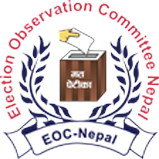

The Supreme Court of India has passed an order to the political parties making it mandatory to furnish the list of candidates whose personal character is tainted with criminal records and cases pending in the court. Political parties that field candidates with criminal records must, from now on tell the public why they have chosen tainted candidates over those with clean records. It has also directed political parties to be published such records in newspapers and on the official social media platforms of the political party, including Facebook and Twitter. The court will take it contempt of court in case the political party fails to submit a report of compliance with these directions with the Election Commission. The court’s decision has been taken as a bold measure and a watershed moment in reforming electoral system in India aimed at checking the criminalization of politics. It is considered as an attempt to give preferences to qualifications, achievements, and merit of the candidate concerned and not to look at the candidate’s ability to win at the polls as sole criteria. According to India Today, the representatives with tainted figures are increasing in numbers in every Lok Sabha elections. There were 24 percent members in Lok Sabha with criminal cases in 2004 election, which increased to 30 percent in 2009, 34 percent in 2014 and 43 percent in 2019. The figure indicates that 43 percent of its total members are facing criminal charges with cases pending in the court.
With regard to the elected representatives with criminal records, Nepal is not an exception. To be qualified to become a member of the House of Representative or member of the State Assembly a person should not have been convicted of a criminal offense involving moral turpitude. Our constitution bars those to be a candidate and contest election who are convicted criminal but does not put any restriction on contesting election who is only alleged. Although, there are ample evidence of representation in the national parliament of those whose criminal cases are pending in the court. The simple reason is that they are simply accused not prosecuted by the court. The jurisprudence says, a person is not a criminal until proven guilty by the court. Based on this legal principle, no one should be denied to be a candidate and contest election. To participate in an election, vote any candidate, or become candidate is the undeniable fundamental civil right of a citizen guaranteed by the constitution, which can only be restricted if a person is incapacitated in moral ground, convicted criminal, frail mental health or if any law forbids.
Some of the notable figures are seen representing in the House of Representatives, despite being tainted with criminal records. They were success to win election and obtain prestigious position as member of the House of Representatives. The criminal charge against them is linked with the moral turpitude, a ground to disqualify any candidate from filing nomination. Has it been seriously taken into consideration while nominating candidates by the political parties to contest elections, the situation would have been different?
Moral is a cognitive process of the mind to filter right or wrong of the words, conduct, or actions of an individual. A rational decision of a person that distinguishes good from bad behavior and therefore the society asks for good conduct that is acceptable to the society. Abiding social norms, values and prevailing laws of the state is a moral obligation of an individual for which laws are constructed to govern the society adaptable with the changing context for keeping the social order as a prerequisite for a civilized society.
Corrupt behavior of an individual helps in decaying the social order. And what happens if representatives of the people themselves lack the required moral standard and holds the political position to govern the nation. It is a serious matter to be reckoned and ponder thoughtfully. However moral is an action not to harm others, defining moral is an abstract thing each individual may perceive differently with varying degrees. The moral of a person is guided by conventional thought and socio-centric principle. The conventional thought of morals is an aspect related to cultural and religious upbringing of a person, whereas the socio-centric moral is based on the moral values collectively accepted by society. As we know corruption is an immoral act, but it is ubiquitous in our society and it is decaying our social values irreparably. The present social condition is that until a person is caught by the anti-corruption body and punishes by the court, the person is thought to be clean and moral.
Since the law cannot grossly put restriction on candidates from contesting election simply based on the allegation of a criminal charge, the moral question should become a binding factor to take note of and introspect by candidate himself/herself or the party that governs his/her behavior. Based on our past experience of the elections, it is, in many respect, a contest of money and muscle power rather than presenting political agenda, and programme for convincing voters in favors. The selection of candidates on the basis of meritocracy and qualification is a second priority of the party other than of selecting a winnable candidate. The winnable candidate on the other hand could have the strength of financial resources to donate the party handsomely and finance one’s election campaign expenditure. As long as the practice of nominating a tainted candidate remains in place, the chances of securing representation by a qualified but poor candidate become a far dream. The notion of fair representation shall remain as a piece of principle to be trumpeted by the poor only.
Nepal also requires to follow stringent measures to restrict tainted figures and criminals not to get a chance of contesting election. The Election Commission of Nepal requires to take note of such methods and make legal arrangements accordingly.